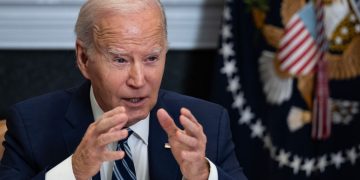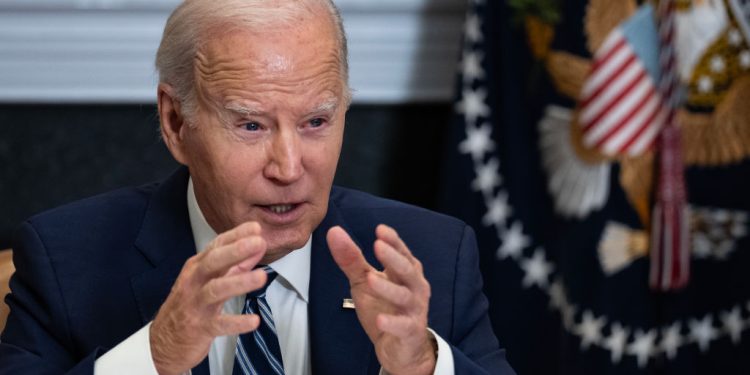The Biden administration is considering altering electric vehicle (EV) tax credit standards in a way that could benefit China in the short-term, Bloomberg News reported Tuesday.
U.S. officials are weighing whether to ease eligibility standards for EV tax credits that currently preclude EVs that use batteries made in China or are constructed with Chinese-extracted minerals, Democratic Michigan Sen. Debbie Stabenow said Tuesday, according to Bloomberg News. Chinese companies dominate the global EV supply chain, and the American EV market has sagged in recent months despite the administration’s best efforts to subsidize manufacturing with taxpayer dollars.
The change under consideration would allow for the eligibility standards for the full $7,500 consumer tax credit to phase in over time rather than take effect immediately in January 2024, Stabenow said, according to Bloomberg. If that change is made, it would allow Chinese firms to indirectly cash in on federal subsidies meant to stimulate American manufacturing and the Biden administration’s massive EV adoption push.
Sen. Stabenow (D-MI): “I drove my electric vehicle from Michigan to here last weekend and went by every gas station and it didn’t matter how high it was.”
Just wait until she finds out how electricity is produced pic.twitter.com/OS5TN78gbz
— Daily Caller (@DailyCaller) June 7, 2022
The tax credit, made available via the Inflation Reduction Act, President Joe Biden’s signature climate bill, is one of several subsidy offerings that the Biden administration is pushing to consumers and manufacturers to facilitate its goal of having 50% of all new car sales be EVs by 2030. The Department of Energy (DOE) is offering manufacturers billions to equip their plants to churn out EVs, and the bipartisan infrastructure law of 2021 set aside $7.5 billion in taxpayer funds to build out EV charging stations.
Despite these offerings, the industry has struggled: manufacturers are losing considerable amounts of money on their EV product lines, consumer demand is cooling off, the adequacy of charging infrastructure remains inconsistent in large swaths of the country and executives are starting to pump the brakes on some of their companies’ near-term production targets.
It is unclear how far these reported discussions have progressed, or whether there would be an option to prolong the reported phase-in period if an initial window of relief does not end up having the desired effect. Some critics of the administration’s EV agenda have attacked it for potentially benefiting Chinese interests at a time of heightened tensions between Washington and Beijing.
The White House referred the Daily Caller News Foundation to Stabenow’s office and the Treasury Department. The DOE, the Treasury Department and Stabenow’s office all did not respond immediately to requests for comment.
All content created by the Daily Caller News Foundation, an independent and nonpartisan newswire service, is available without charge to any legitimate news publisher that can provide a large audience. All republished articles must include our logo, our reporter’s byline and their DCNF affiliation. For any questions about our guidelines or partnering with us, please contact [email protected].
All content created by the Daily Caller News Foundation, an independent and nonpartisan newswire service, is available without charge to any legitimate news publisher that can provide a large audience. All republished articles must include our logo, our reporter’s byline and their DCNF affiliation. For any questions about our guidelines or partnering with us, please contact [email protected].



























 Continue with Google
Continue with Google